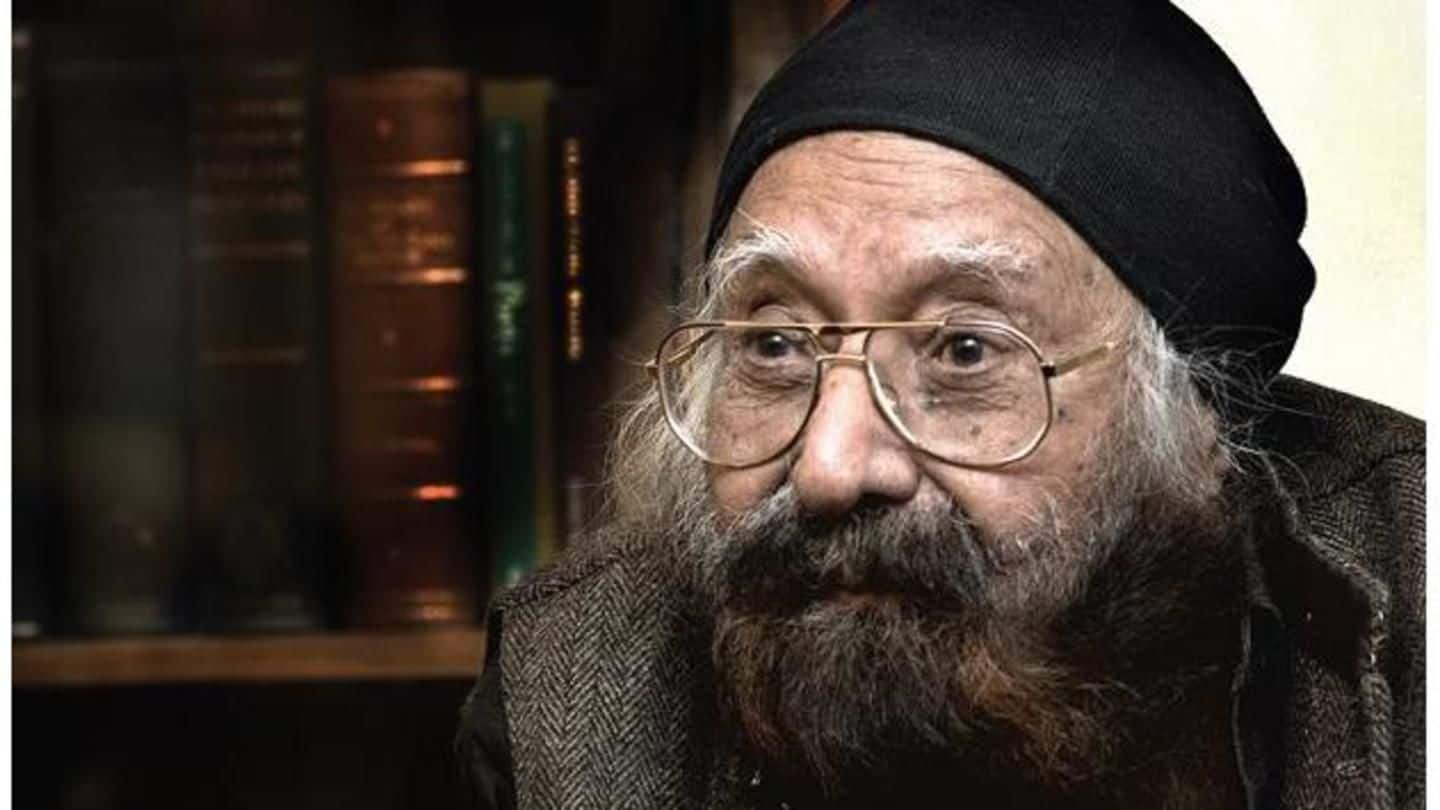
New book brings together Khushwant Singh's best writings on Punjab
What's the story
Four years after the death of the legendary Khushwant Singh, a new book brings together some of his finest writings on his native land Punjab. "Punjab, Punjabis & Punjabiyat: Reflections On A Land and its People" presents a comprehensive picture of the land of five rivers, from its origins and geography to its illustrious history and the troubled times of Partition through Singh's lens.
Iconic writer
Singh was a recipient of Padma Vibhushan award
Born on August 15, 1915, in Hadali, in then-undivided Punjab, Singh is considered one of the country's greatest writers. He could blend humor and simplicity in his signature descriptive storytelling. He was awarded Padma Vibhushan in 2007 and passed away on March 20, 2014, aged 99. The book is edited by his daughter Maya Dayal and published by Aleph.
Punjab
Dayal talks about how Singh was disappointed with Khalistan movement
"My father closely followed the political situation in Punjab and watched with dismay the growth of the Khalistan movement and the increasing influence of Bhindranwale," Dayal said. "His anguish at the storming of the Golden Temple by the Army was so great that he returned the Padma Bhushan (1974) awarded to him by the government," Dayal says in the book.
Quote
Singh's writings were often based on concerns about Sikhism
Dayal reveals that many of Singh's Rajya Sabha speeches when he was an MP, his diary, and columns reflected his concerns about matters related to Punjab. "He was worried Sikhism would lose its distinctiveness as a faith and be absorbed by Hinduism," she says.
Notable works
Witnessing Partition inspired Singh to write 'A Train to Pakistan'
Having witnessed the impact of Partition first-hand, Singh was inspired to write "A Train to Pakistan", one of his most famous works, published in 1956. He subsequently published five other novels, "I Shall Not Hear the Nightingale", "Delhi: A Novel", "The Company of Women", "Burial at Sea", and "The Sunset Club". Several of his short stories were compiled in "The Portrait of a Lady".